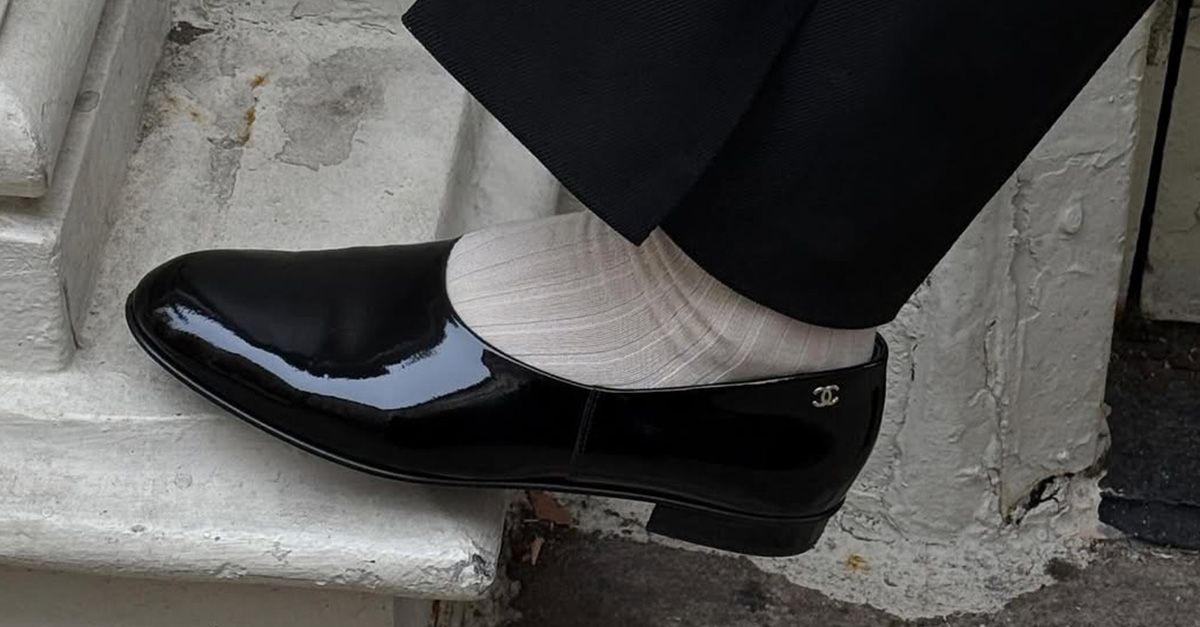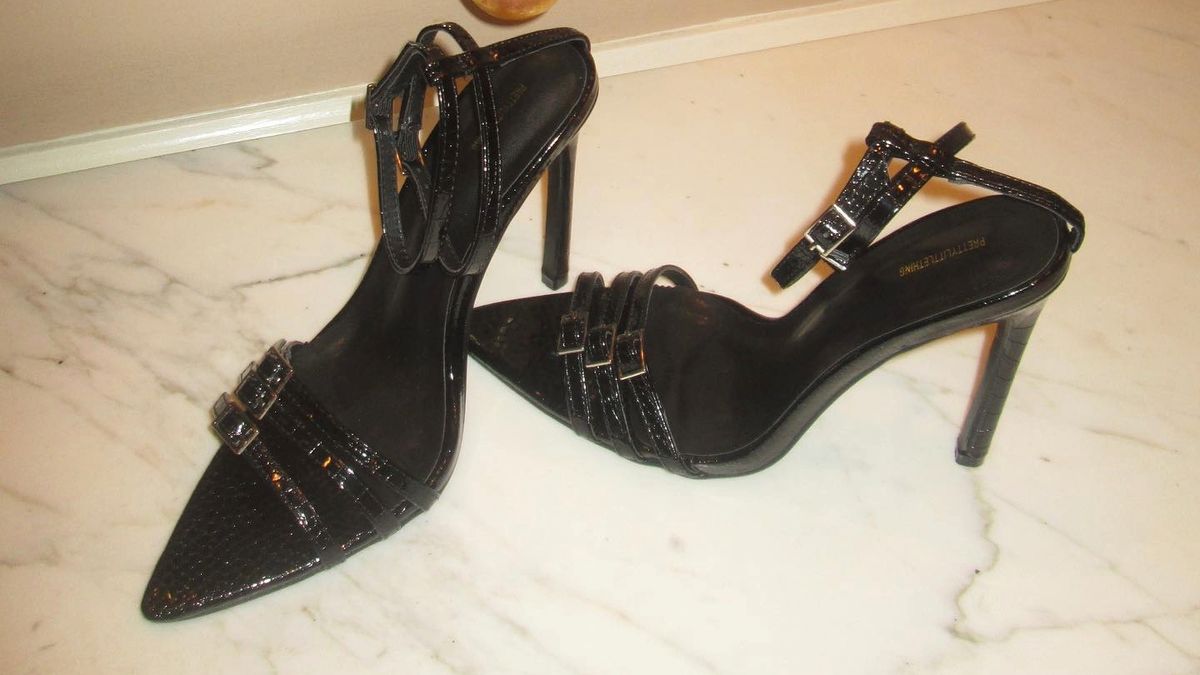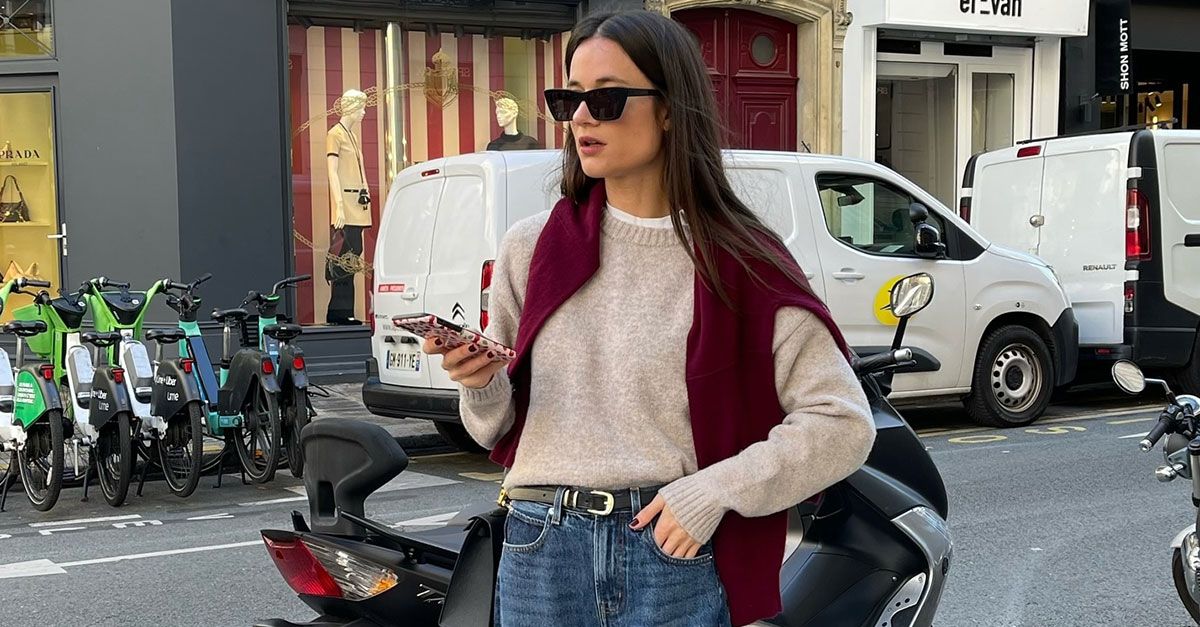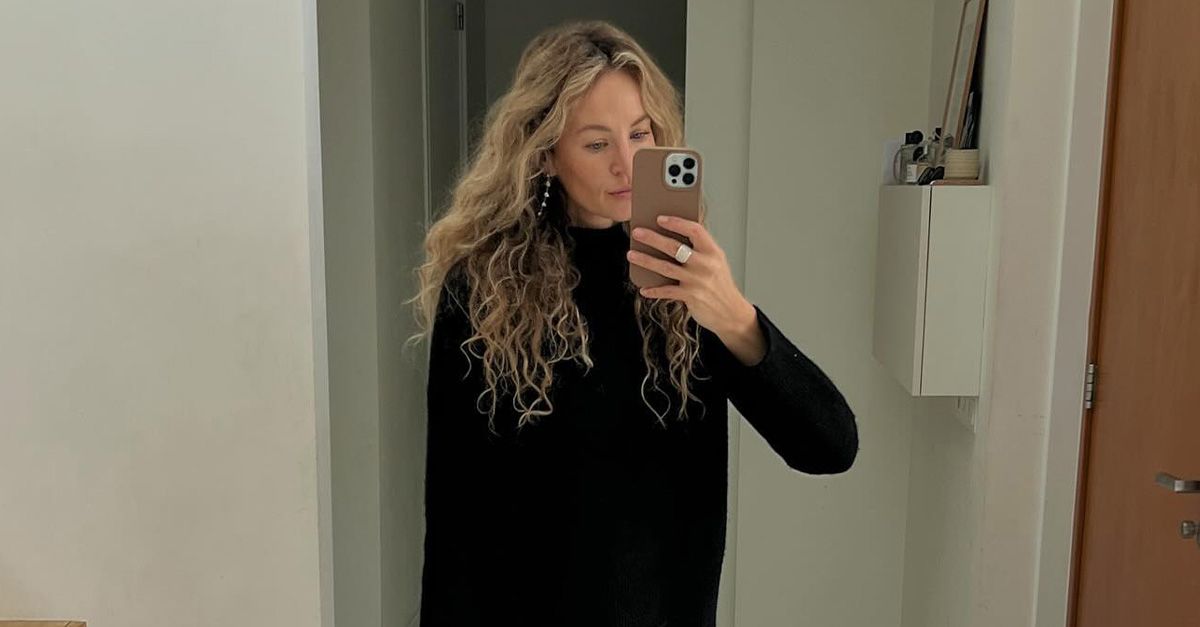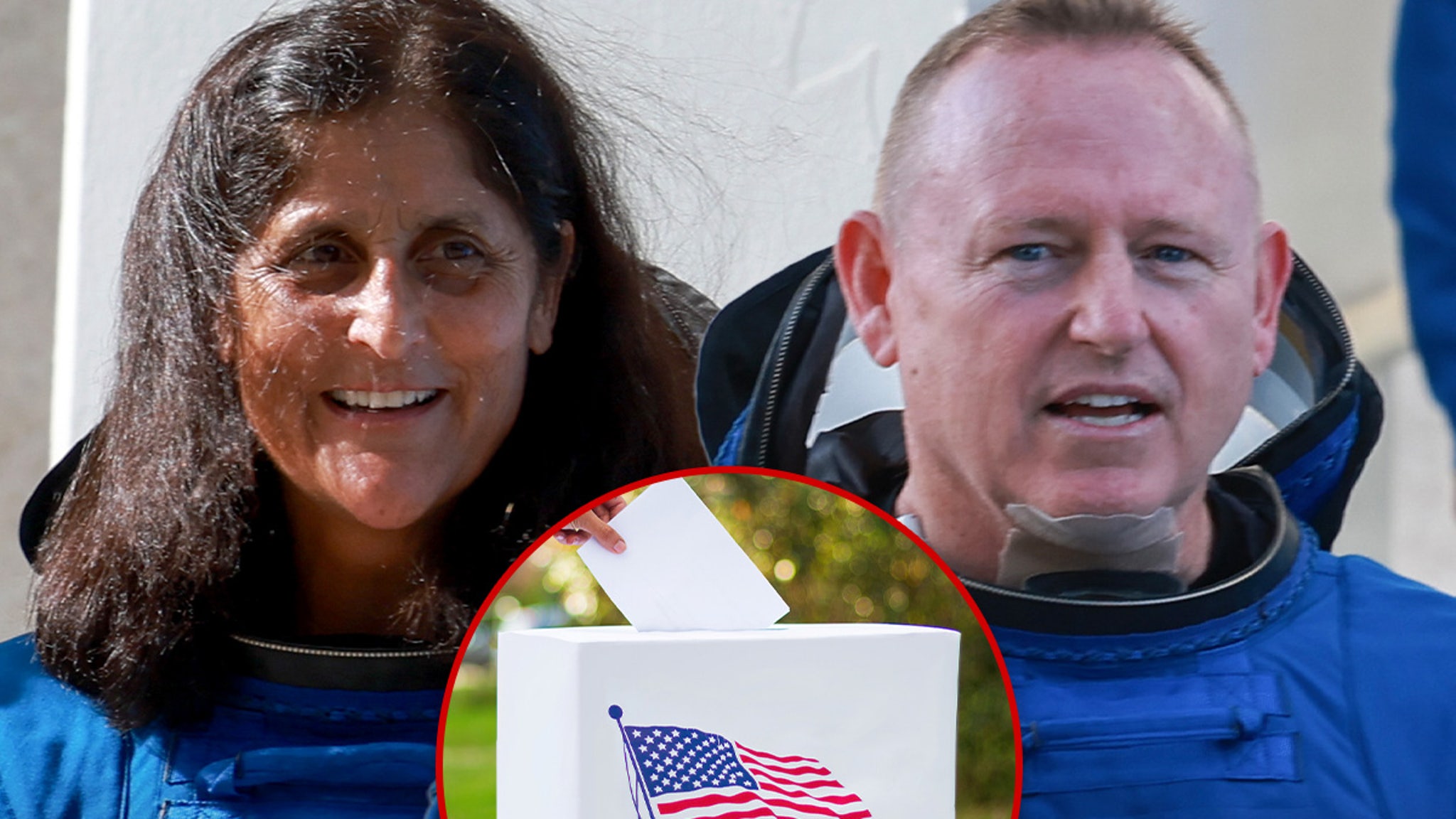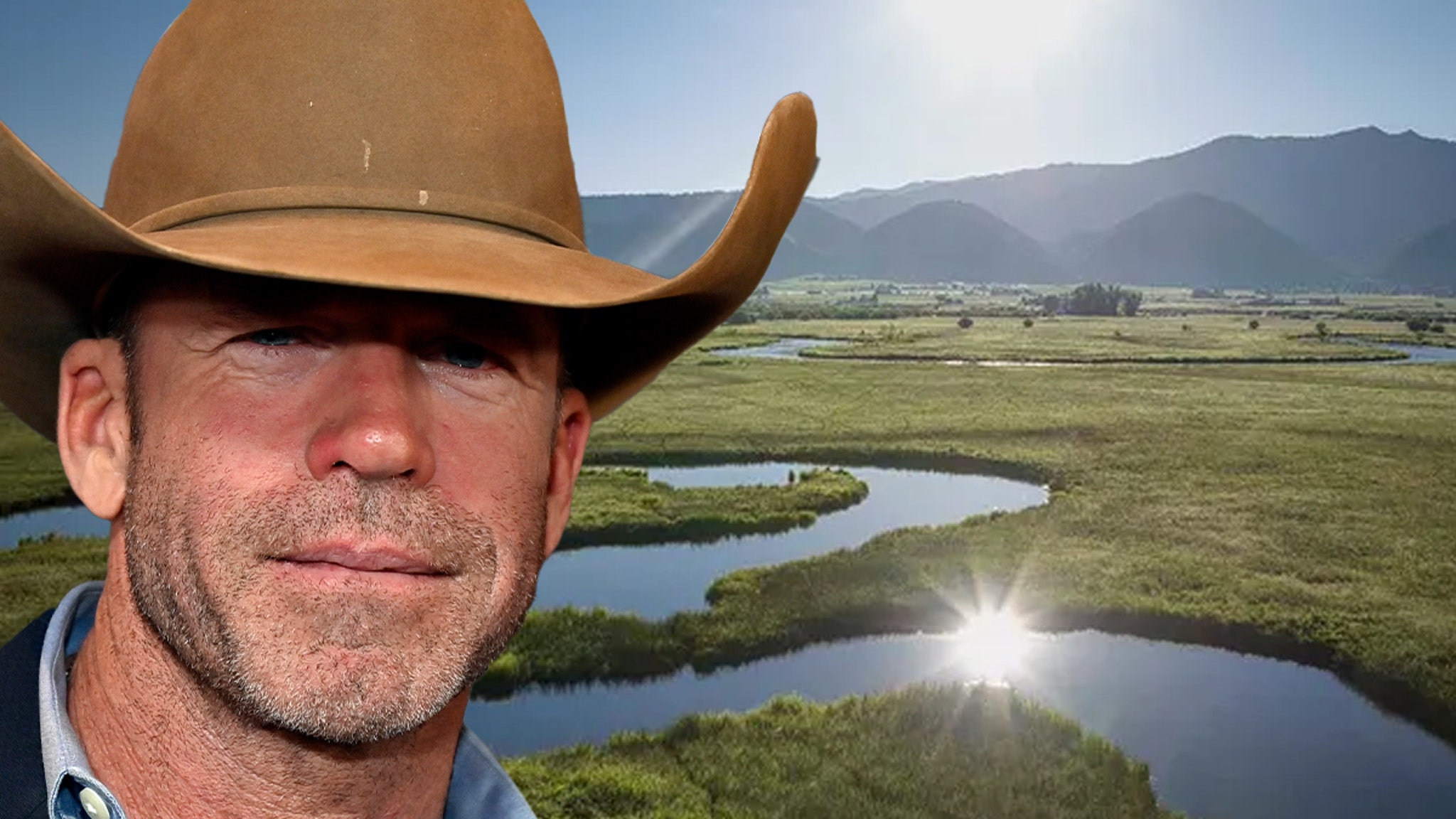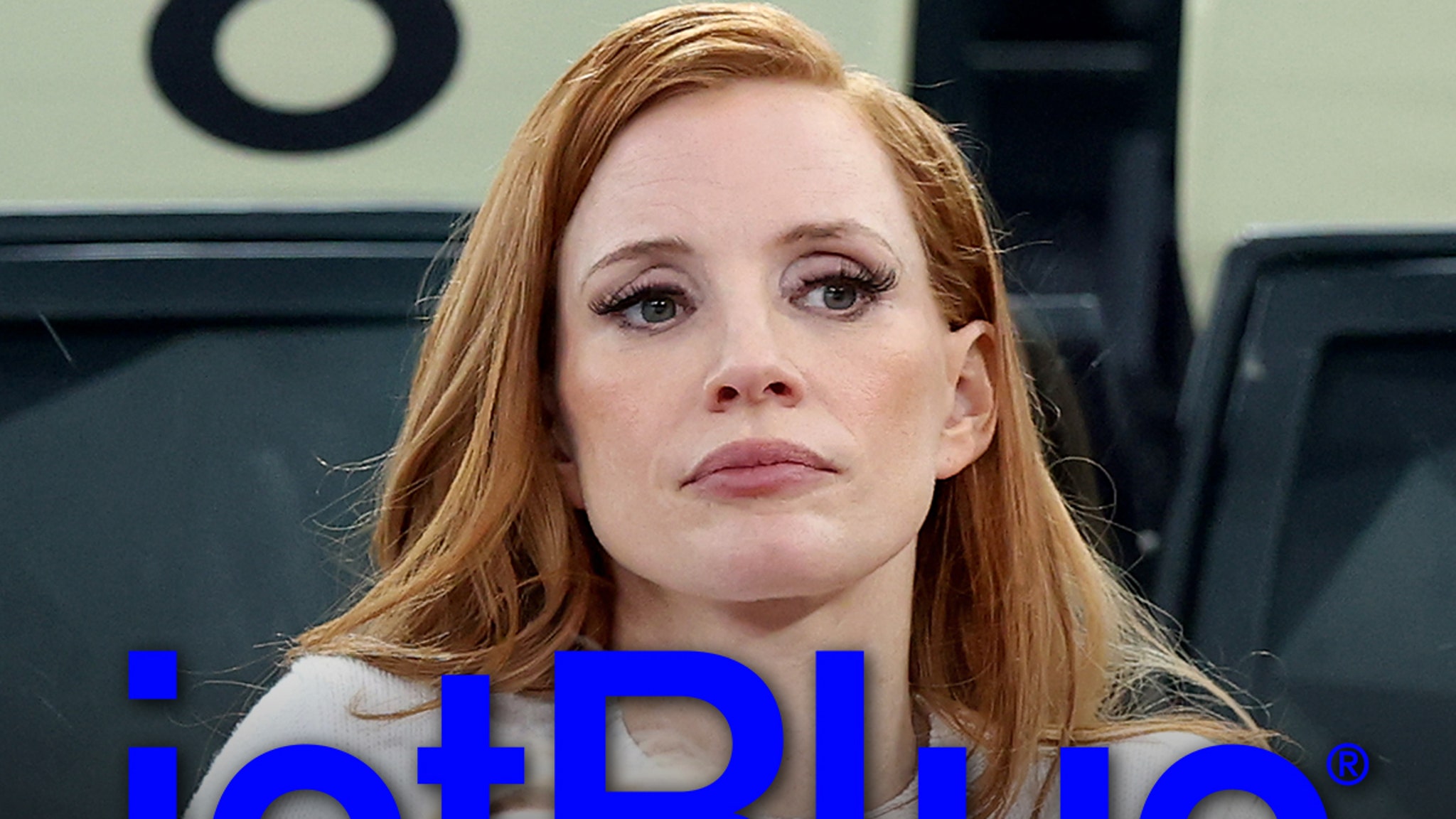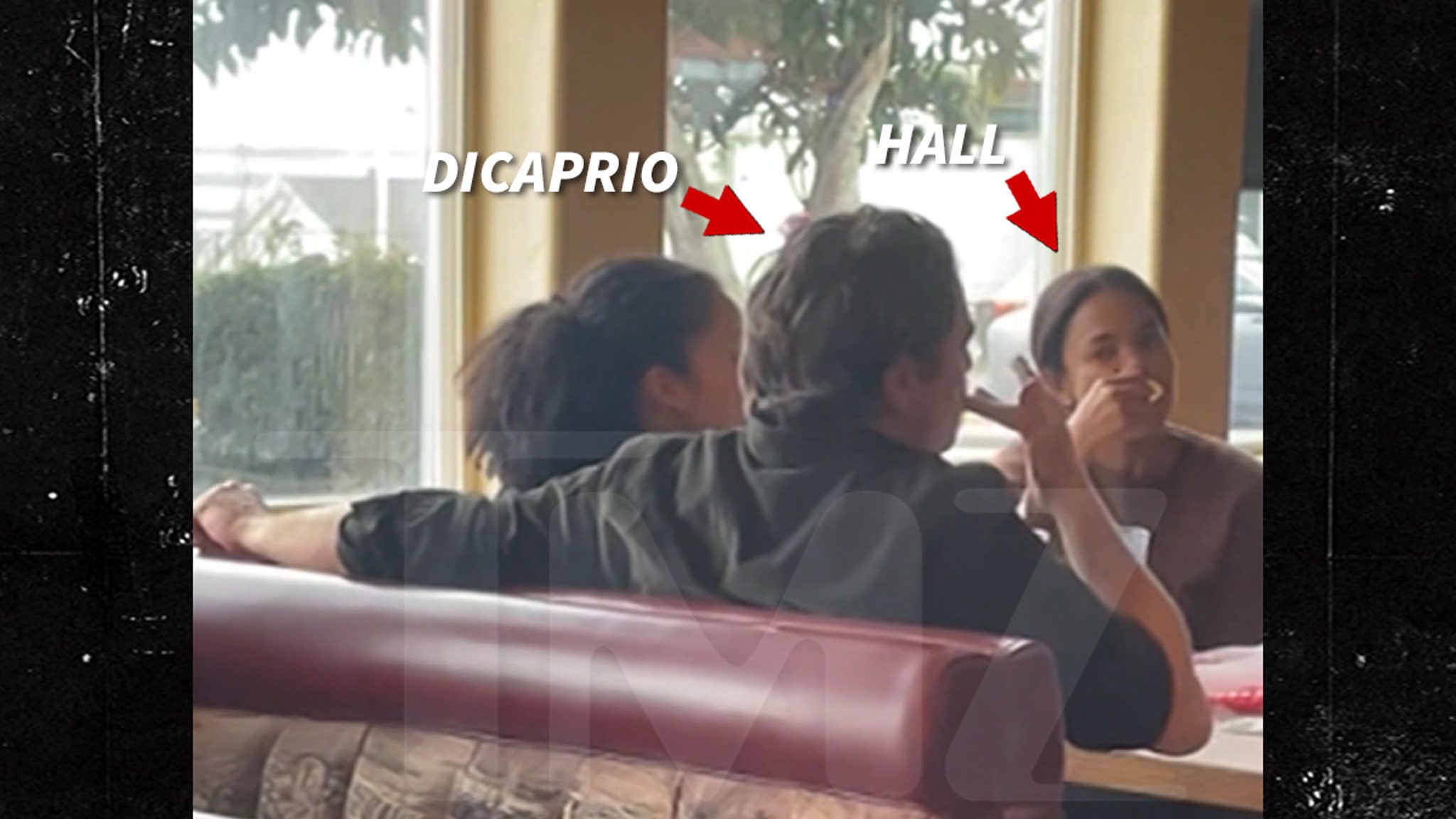Pharrell Williams was always happy. He wasn’t always humble.
Since earning his first music credit on Wreckx-n-Effect’s 1992 ass-shaking anthem “Rump Shaker,” the producer/songwriter/rapper/singer/composer/fashion designer/movie producer/father has spent the past three decades on top of the world. You could easily write a thesis on how his inventive, colorful beats and creative lyricism — some as one-half of The Neptunes — have contributed to the pop culture landscape. He helped Britney Spears transition from teeny bopper to racy pop star; gave swag to NSYNC and later Justin Timberlake, aiding in his successful solo sprint; had everyone getting undressed at the club with Nelly’s “Hot in Herre,” and the boys — and girls and everyone else — running to the yard with Kelis’ still tasty “Milkshake.” Along the way, he gave Snoop Dogg his first No. 1 hit on the Billboard Hot 100 in “Drop It Like It’s Hot,” helped Jay-Z land his first No. 1 on the R&B/Hip-Hop chart and even guided Ariana Grande to her first Grammy.
Who else has worked with Kendrick Lamar, SZA and Frank Ocean as well as Hans Zimmer, Beck and Daft Punk? Or Beyoncé and Madonna, Shakira and Rosalía, Ed Sheeran and Miley Cyrus? And that’s not even counting his meteoric and unprecedented rise in the fashion industry, from style-setter with his signature Buffalo hat to Louis Vuitton Men’s creative director, whose fashion show this summer was dubbed “monumental” by GQ. Pharrell’s résumé is unmatched.
Pharrell Williams was photographed Aug. 23 at Grove Studios in Miami. Louis Vuitton Men’s clothing, sunglasses.
Photographed by AB + DM
But something transcendent happened almost a decade ago when three songs — Daft Punk’s “Get Lucky,” Robin Thicke’s “Blurred Lines” and “Happy” — changed his life, in more ways than one.
“When I was 40 and I had three No. 1 records in a year, all of them were commissions. With ‘Get Lucky,’ the Robots [aka Daft Punk] asked me to write a song. I’m thinking I’m writing a song for somebody else to sing, and if I would’ve written it for me, it probably wouldn’t have been as big, because I would’ve written for my ego,” the 51-year-old explains. “When that shit blew up, I was like, ‘Whoa! OK, hold on.’ And that humbled me.”
The insta-success of Thicke’s “Blurred Lines” spurred further introspection: “I’m getting all this adoration from it and I’m like, ‘Whoa, whoa, whoa.’ At this point in my life, just so you understand, before ‘Get Lucky’ or ‘Blurred Lines,’ I’m thinking, ‘Oh, OK, I’ve had my peak.’”
Then came “Happy,” and the tears began to roll in. Pharrell originally wrote the song for CeeLo Green, who recorded the track, only to see it rejected by his record label. The studio behind Despicable Me 2 loved Pharrell’s demo so much, they wanted to use that version for the film. “When that record exploded, it was like, ‘OK, I didn’t wake up one day deciding that I wanted to make a song about an emotion. It was conditioned. At that point, I’m crying, because I’m like, ‘OK, God, what’s going on?’ Because my reality was always, ‘I wrote this song. I produced this song. I sold this many records. I sold this. I sold that.’ It was me, me, me, me. Those three No. 1 songs [written for and in collaboration with others] enlightened me that it’s so many other factors,” he says.
It’s why five years ago, Pharrell was ready to share his story through Piece by Piece, Focus/Universal’s animated Lego biopic about his life and musical career. For years, he says, his agent said he should do a documentary, but the entertainer admits he didn’t want to focus on a project about himself because “I am too much of a perfectionist and I’m too opinionated.” But when he was told he could do it any way his brain could imagine, he immediately thought of Lego.
“I’m humble now, but it tells you the story of how I became humble,” he says of the film, in theaters Oct. 11. “And what I love about it is, from 8 to 80, it’s never too late for you to think about your dreams and build them piece by piece. It’s never too late for you to go pick up a Lego set and make things and be a co-creator. It’s never too late to wake up to that. It’s never too late to gain that self-awareness. This is my dream, for people to have that.”
When thinking of directors, Morgan Neville came to mind, since Pharrell was a big fan of the Oscar- and Grammy-winning documentary 20 Feet From Stardom as well as Won’t You Be My Neighbor?, the top-grossing biographical doc of all time. As Neville interviewed key players in Pharrell’s life and career, he began to see the story unfolding.
“Pharrell’s private, but I think people understood that Pharrell trusted me to try to investigate the emotional story,” says Neville. “The story is one about creativity and how we find our voice and how we might lose our voice and how we try to recapture our voice.”
Like Pharrell, a genre-less artist who has worked in hip-hop, pop, rock, R&B, country and more, Piece by Piece isn’t just one thing: It’s an animated feature. It’s a documentary. It’s a musical. It’s a biopic. It’s unique. “Our working title was Out of the Box,” says Neville.
Knowing the film’s premise would need some selling, he “made a proof-of-concept because I figured we’d have to show people — they weren’t going to get it unless we shot something. We would interview people in a home studio or I’d send a sound person to their house, and then we got all the archive footage we could find of Pharrell in the normal documentary way. And we actually cut the entire film like a documentary before we started animating it.”
Focus Features chair Peter Kujawski says he was on board after seeing a roughly 90-second preview. “Even for us, this feels like maybe it’s a little bit insane,” he says. “This is a next level of breaking so many norms and boundaries of what a typical narrative is. This one feels like it could be the most special thing we’ve ever done.”
Piece by Piece features big Pharrell collaborators, and Pharrell himself, voicing their characters, including Jay-Z, Snoop, Kendrick Lamar, Missy Elliott, Timberlake, Gwen Stefani, Timbaland and Busta Rhymes; Pharrell also composed five original songs for the film. It’s the latest project in his growing filmography — highlights include a best picture Oscar nomination as a producer for 2016’s Hidden Figures, for which he composed music, too; he’s also produced music for the Despicable Me franchise and 2014’s The Amazing Spider-Man 2. Next year, Universal will release Atlantis, the coming-of-age musical movie inspired by Pharrell’s childhood growing up in Virginia Beach’s Atlantis Apartments. “It’s wrapped, just editing and getting ready to do post,” he says of the picture featuring Elliott, Quinta Brunson, Da’Vine Joy Randolph, Brian Tyree Henry, Halle Bailey, Janelle Monáe, Anderson .Paak and, as Pharrell, Kelvin Harrison Jr. In an interview with The Hollywood Reporter, the 13-time Grammy winner talks about his starry collaborators, almost working with Prince and Michael Jackson, and his aversion to politics, celebrity or otherwise.
Louis Vuitton Men’s clothing, sunglasses.
Photographed by AB + DM
How does it feel watching Piece by Piece? Were you able to take yourself out of it and take it in?
That’s exactly it. I take myself out of it. I connect to it. I hear my voice, but it’s realizing it ain’t you, man. You’re a part of this movie called life, and you are here to play your part. If you don’t take yourself out of it, then you take yourself too seriously, and then you lose your footing. But to me, the ultimate foundation is humility, being grounded, having your feet really connected to the earth — not being too flighty and too knowing of everything. There’s a part in the score where it’s like, “Mr. Know-It-All.” That’s what I was for a very long time.
Musicians, we wake up one day and you think that about yourself, that you are great. No. Credit is to be given and not to be taken. So this was a long journey for me, and I wanted to share that with people, so that somebody in my shoes at 31 or at 21 or at 11 could make the switch.
As someone who’s interviewed you and covered your career since 2008, I remember noticing a big difference in you after “Happy.”
I was gassed [i.e., his ego was too big].
You seemed more grateful after “Happy,” and at that time, you shed a lot of tears, from your Oprah interview to the iHeartRadio Music Awards.
I was emotional because that was when that realization was hitting. Like, “Yo, it’s not just you. You’re lucky to be a part of it.” I could never unsee it now. It’s like going to space and looking around. You come back to Earth, you’re like, “Oh, I’m bugging. What was I doing before I left? I ain’t doing that no more. That shit’s a distraction. This whole situation is a waste of fucking time.” And then you get focused.
You’ve got to be very careful — the hubris kicks in quick. As soon as enough people tell you this and they tell you that, you start believing that, and that’s when you get into trouble.
Aren’t you happy that CeeLo didn’t release “Happy”?
When his record label would not approve it, I didn’t understand it. I was like, “Yo, this guy is crushing this. What are we doing?” I mean, if you hear it, it’s amazing. But then it didn’t happen. So then the movie company was like, “Oh, well, we’ve been listening to your demo the entire time. Why don’t we use that? We’re good.” And I was like, “Wait, what?” It was like the “Get Lucky” thing all over again, like, “You’re using my hook? Wait, what?”
You’re a private person, but this film includes your parents and your wife, Helen Lasichanh, and they voice their characters. What was it like to incorporate them?
I think my parents are watching it all happen; they understand some of it, and some of it they don’t. I always play my wife records and see how she feels about certain things, just like I do with my other friends. I love her taste, too. I’ve always appreciated that.
Pharrell and Gwen Stefani in Piece by Piece.
Courtesy of Focus Features
Your grandmother was instrumental in you finding your voice in music. Did she ever talk to you about your success?
She was around for the very beginning, and then she passed. Before I was ever in the music industry or doing music, she used to tell me that I was going to go to some place that was so high that not only I wouldn’t understand it, but other people wouldn’t understand how I got there. But she saw my success before I was ever even in music. It was crazy. She knew.
Did you really get fired from McDonald’s three times?
I did. From three different McDonald’s.
It wasn’t the same location?
It would’ve been even funnier if I got fired from the same one, but it was just as bad at the time, and that’s because I was lazy. And that’s the other thing I wanted people to get from this story, too. I was lazy, but I was lazy for a reason, because I wasn’t inspired. But when I got inspired, I’m now a workaholic, man.
What words can you offer to someone who’s working at McDonald’s and wants to make it but can’t see the possibilities?
Very simple. Think about something that you love to do, so much so that if you could do it for the rest of your life and never make one penny from it, you would still do it as long as your bills could get paid. Figure out what that is. Let’s say that’s football, but you’re not in shape for football or you might be too small, or you might be too young — is there a job that you could do that’s connected to it? Maybe you could be a coach? Could you be a sports therapist?
If you could figure out a way that you can do a job connected to something that you love, you’ll love showing up every day. You’ll come to work early on Monday and you’ll leave late on Friday. If you can also find a way to service humanity while you’re doing that — well, now you have a dream job that you would do literally for free, but you get paid for it. You’re a part of a bigger team, and you’re doing something that is contributing to the community or your city or your state or the world. That’s the key.
The movie features a scene with you, Timbaland and Missy Elliott making music at school during lunchtime in Virginia Beach. Did that really happen?
That was cinematic liberty. Me and Missy didn’t go to the same school, but Timbaland and I did. Tim taught me how to do this really complicated drum pattern from Eric B. & Rakim’s “I Ain’t No Joke,” the snare roll. He showed me with his fingers on the lunch table, and I was like, “That’s fucking crazy.”
We didn’t know that we wanted to be in the business. We just liked making music. When we realized we wanted to be in the business, it felt like it was so hard to get on. Then, when we got in there, we never let it go. Timbaland’s a genius. He’s relentless. He’s doing something fire right now. He stays doing super fire shit. I was honored to be in a group with him. We were in a group — me and him, Mr. Magoo, Larry Live, 700K. We were in this group called SBI, Surrounded by Idiots.
This was before The Neptunes?
This was right around the same time. I was doing both. There are demos online. We were the first to sample Michael Jackson’s “Human Nature” and “The Lady in My Life.” This is 35 years ago.
How do you feel when you hear a recording of your voice?
I hate it. Doing it in Lego allowed me to objectively appreciate my voice and my point of view and what I want to do. When I hear myself without any kind of other platform or anything connected to it, I’m like, “Shut the fuck up. Literally, why are you saying that? Like, who cares? Who do you think you are — some philosopher? Shut the fuck up.”
Like, they asked me to do something the other day and I’m like, “No. Who wants to hear me? Like, no.” But this film has allowed me to get inspired by my story for the first time because I’m looking at it through a different lens, a different filter, so I can appreciate it objectively.
You’ve worked with hundreds of musicians — was it hard picking who to include in the film?
I let Morgan deejay. I let him figure out what parts of the story he wanted to tell. He really shaped the direction of the storytelling.
Piece by Piece allowed Pharrell to “get inspired by my story for the first time.”
Courtesy of Focus Features
Did he also pick which of your songs to include?
That was him. And he didn’t really know my music that way. I think it was a combination of him looking at charts, doing his research and seeing what songs made impressions — and then he told the story with the songs. I think he did such a masterful job.
Britney Spears appears in the film, and you worked together on hits like “I’m a Slave 4 U.” Have you been in touch with Britney?
Man, I ain’t spoke to Britney in maybe 10-plus years. I think I’ve seen her in the elevator one time. I think we were all going into the same place or something. I can remember exactly where it was, and she had her sunglasses on, and I was like, “I know that’s Britney. Maybe she doesn’t remember me. That’s fine.”
And wasn’t Justin Timberlake the one who introduced …
Me to Britney. And Jay-Z introduced me to Justin. We were at this club in New York.
What do you remember about recording “I’m a Slave 4 U” with Britney?
She was eager and ready to transition. And I put a fire under that notion. I was like, “Oh, that’s how you feeling? OK, let’s put this fire under that. Let’s go.”
Now that we’re in 2024, would you use that same title for a song?
Well, that’s not a word to play with these days. And there’s many different angles, right? Obviously, what my people and my DNA and my ancestors had to endure and overcome, but then there’s also all the atrocity that happens in human trafficking every day. So, no, that’s not something I would say. There are a lot of songs that, as the era changes from one day to the next, what was contextually acceptable at one time is no longer acceptable. But I think that’s for the better.
I think there are a lot of songs where I wouldn’t say half the things that I said before. As the time changes, so does mentality and hopefully it evolves to a better place. And it’s not about being politically correct, it’s about being universally aware.
You wrote “Frontin’ ” for Prince? Creatively, what were you feeling?
It was me being a huge fan. When I make music for people, I channel their energy and oftentimes they get it, and oftentimes they don’t get it and they pass. For me, I know I’m pretending that I’m this person, doing what I think they should be doing, and I get connected to that part, not how I actually sound. So sometimes my team would be like, “Oh, no, you should keep that for you.” I’m like, “No, he should be doing that,” or, “She should be doing that.” … “Yeah, but you sound interesting doing that.”
Do you know if Prince got a chance to listen to it?
When I met him, he said to me, “Oh, we need to talk about religion first.” And I was like, “Whoa. OK.” And we never did follow up. We did a remix for him, “The Greatest Romance Ever Sold (Neptunes Remix).” And I did a remix for Sade. Those are the two super legends we did remixes for. Those were iconic, like, “Holy shit. Can’t believe my life.”
But [Prince] was like, “Nah.” So I couldn’t even give it to him. Similar situation with Michael. The Michael one was more in-depth.
Did you and Michael Jackson get a chance to work in the studio?
We didn’t. But that music is the music that ended up being the bulk of the first Justin Timberlake album, Justified [in 2002].
From left: Pharrell produced Beyoncé’s first solo single; with Justin Timberlake; performing onstage at A Grammy Salute to the Beatles in 2014.
Dave J Hogan/Getty Images; Kevin Mazur/BET/Getty Images; Kevin Winter/Getty images
Who’s at the top of your list of people you want to work with?
Sade. Oh my goodness. I would love to. She’s amazing. She’s so talented. And Future. I rapped on one of his songs, “Move That Dope.” Actually, he was on an N.E.R.D. song, “1000,” a punk song. But I’ve got other plans, though.
Pusha T told the story of you almost giving Clipse’s “Grindin’” to Jay-Z. Did Jay ever hear the beat?
No. No. No. I’m loyal. I don’t play those kinds of games. But Pusha heard it, and he knew that it was alien. It was hard as a bitch and that’s what I pride myself on — shit being alien.
Have you been in a situation where two artists want the same song?
Sometimes I play something for somebody and they don’t get it, and then I give it to somebody else and then person A comes back and goes, “Yo, why wouldn’t you make me something like that?” I’m like, “Yo, I played it for you!”
Then there are moments when you play it for them and they totally don’t get it at all, which is fine. And that goes on to become the inspiration for something else — sometimes five years later. Literally, “Slave 4 U” was a song that I did for Janet [Jackson]. “Caught Out There,” by Kelis, I made that for Busta. There’s a bunch of them. Hold on a second. [Usher’s] “U Don’t Have to Call,” first it was for Michael. Then it was for Tevin Campbell. Then Ray J might’ve cut it. Ray J cut a lot of those songs, and he only ended up keeping “Wait a Minute.”
One of Pharrell’s first incarnations was the influential rock group N.E.R.D. comprising (from left) Pharrell, Chad Hugo (the two met when they were 12) and Shay Haley, who first performed with the duo in high school.
Paul Natkin/Getty Images
Your Neptunes partner, Chad Hugo, whom you met in seventh grade, recently filed a lawsuit claiming you are trying to monopolize the name of your duo. How are you and Chad right now?
I always wish him the absolute best.
Is that him voicing his character in the movie?
Yep.
Are you guys on speaking terms now?
No. But I love him, and I always wish him the absolute best, and I’m very grateful for our time together.
You’ve worked on several Beyoncé albums and produced her solo debut single, 2002’s “Work It Out.” What’s it been like to see her evolve over the years?
So happy for her. And I’m so grateful to be a part of her story and her journey and her trajectory. We’ve had a lot of fun. Get ready, though. Just get ready.
Get ready for more? What?
Just get ready.
What?!!!
Just get ready.
Have you ever turned down working with an artist?
Yeah, all the time.
Is that more because of scheduling and timing or you being selective?
You’ve got to be selective because you don’t have time, right? And number two, you’ve got to be inspired, and not everybody is inspiring. Sometimes shit be too derivative for me. I like originality.
There have been a lot of conversations about rights for songwriters, especially with how little streaming pays. Do you feel that rights for songwriters need to change?
Of course. It’s a legally criminal enterprise. It needs to change. It will. There are good people in the music industry that know that it needs to change and they’re working on it. It’s going to happen. Jon Platt at Sony [Music Publishing], he’s a legend. He’s working. [Sony Music Entertainment CEO] Rob Stringer, he’s working. There are people who are thinking about these things every day and trying to figure out how to crack the nut, and they will.
So many artists have sold their entire catalog or part of it, including Bruce Springsteen, Dr. Dre, Stevie Nicks, Bob Dylan and Justin Bieber. I imagine you’ve been approached by companies to sell?
Yeah, but selling is not for me. There’s no number to sell your rights. Not for me. But to each his own. For some people, I guess, it makes sense. When they’re done, they’re done. But I love music and I love my work, and I love my ability to make music, so selling is not a thing.
Louis Vuitton Men’s clothing, sunglasses; Pharrell’s own jewelry; Richard Mille watch; Cactus Plant Flea Market socks; Adidas sneakers.
Photographed by AB + DM
How do you feel about the Grammys? Some people feel indifferent toward awards shows, some are for them.
I think it’s a good thing. I think it needs to continue to evolve. And it will.
What are your thoughts on Black artists famously losing in the top three categories at the Grammys, from Beyoncé to Kendrick Lamar?
They’ve definitely got a lot to work on, because they’re a big organization, and they try to be too many things to all people, that’s where a lot of nuanced things get skipped over and fall between the cracks, and that’s a problem. But they know what their issues are, and they’re working on them. There are some good people in position now.
Some feel that Beyoncé will finally win album of the year with Cowboy Carter. Do you think it could happen?
It better be. It better be. They know.
Two years ago Beyoncé removed the interpolation of Kelis’ “Milkshake,” which you wrote and produced with Chad Hugo, from her Renaissance track “Energy” after Kelis aired her grievances on social media. Did you ever speak about that with Kelis?
(Makes a “no” sound.)
Have you and her talked at all?
(Makes a “no” sound.)
No?
(Makes a “no” sound.) I wish her the absolute best. But I wrote this song.
You’re saying you don’t have to get her approval to do anything with the song?
Not on “Milkshake.” It was me and Chad [who] produced it.
You’ve had a lot of success on the charts, but how does it feel when something doesn’t do well? Specifically I’m thinking of Justin Timberlake’s 2018 album Man of the Woods, his first release to underperform (Pharrell worked on nine of the 16 tracks).
It was a complicated scenario. The body of work, the music itself, I loved. I thought that was great. But I would’ve approached all the other elements that go along with the music, to accompany the music, I would’ve approached it differently. But it wasn’t my album — you honor people as artists and their creative decisions.
But there are so many jams on that album, so many. There’s a song called “Montana” and there are so many [that I love]. I think it will age well when people go back to it and realize it’s not an R&B album. And it wasn’t a country album. It was just very Americana. We were early on that. But it needed to be communicated that way, and people needed to understand what it was going to be, you know what I mean? I think I would’ve rolled it out a little bit differently and the other accompanying elements would’ve been different.
We have a big election coming up — how are you feeling about it?
I am much more of a federal employee. I believe in merited civil service.
Could you elaborate on that?
Well, there are federal employees appointed by the president, right? You come in because you are loyal to a party or your leader. Then there are federal employees, this is what they do, come rain or shine, whether it’s a Democrat or a Republican in office, you show up to work every day, you serve your country. I’m more of a humanitarian. I like people trying to help people. Not sure I’ll ever vote far right. (Laughs.) I won’t do that.
But I don’t really do politics. Some policies I lean into; I think education is important. We have a nonprofit called YELLOW [whose mission is equity through education], and then there’s another 501(c)(3) that helps Black and Brown entrepreneurs called Black Ambition — those are the things I lean into. I’m not an activist, but I believe in action. But I do believe in activists, and you need everybody.
Music is playing a big role in the election. Would you allow either party to use your music in their campaigns?
I don’t do politics. In fact, I get annoyed sometimes when I see celebrities trying to tell you [who to vote for]. There are celebrities that I respect that have an opinion, but not all of them. I’m one of them people [who says], “What the heck? Shut up. Nobody asked you.” When people get out there and get self-righteous and they roll up their sleeves and shit, and they are out there walking around with a placard: “Shut up!” So, no, I would rather stay out of the way, and obviously, I’m going to vote how I’m going to vote. I care about my people and I care about the country, but I feel there’s a lot of work that needs to be done, and I’m really about the action.
Louis Vuitton Men’s clothing, sunglasses; Pharrell’s own jewelry.
Photographed by AB + DM
This story appeared in the Sept. 11 issue of The Hollywood Reporter magazine. Click here to subscribe.
Source From: www.hollywoodreporter.com
Source link
- Sonic Review – The World #1 App Allows You To Launch Your Own AI Streaming Platform Preloaded With Over 100 Million Artists, Playlists, Podcasts, Genres, Audiobooks & Radio Channel And Tap Into 600 Million Paid Members!
- Voixr Review – The #1 Emotional-Based-Human-Like Voice Cloning AI Powered App Cloning and Speaking In 1,800+ Voices With 144 Native Languages Instantly Without Recording or Any Tech Skills!
- SiteRobot AI Review – The #1 AI-Powered App Let Us Build Complete Websites + Contents Instantly By Using Just Your Keyword!
- Quillaio Review – Get Your Website Ranking In Page 1 With The Most Powerful AI Engine And Hand Free Optimization Of Your Contents!
- MailDaddy Review – The New Email Marketing Software Helps You Send Unlimited Emails To Unlimited Subscribers By Getting 99.96% Inbox Delivery With Assurance To Get More Opens, Clicks, And Sales!


